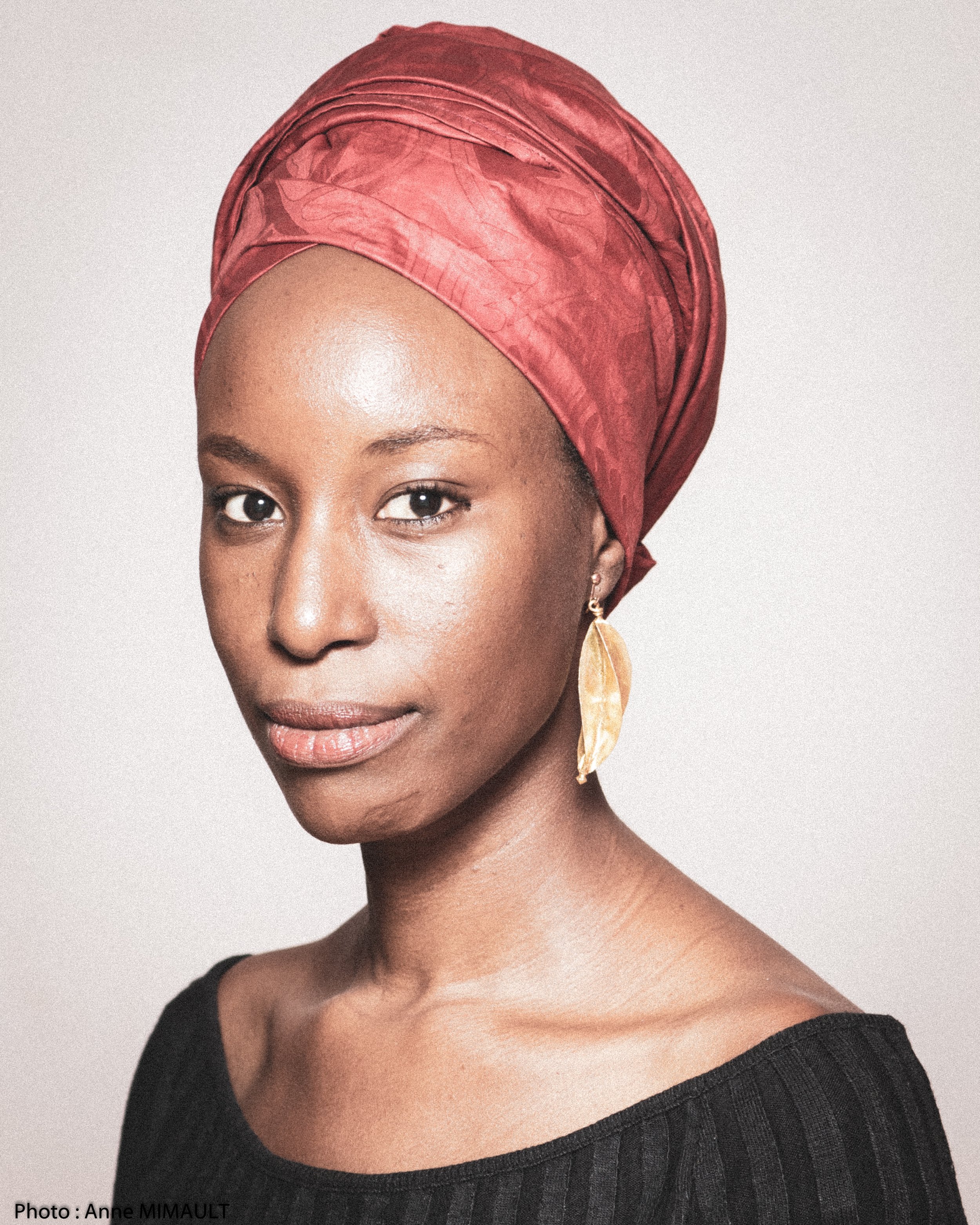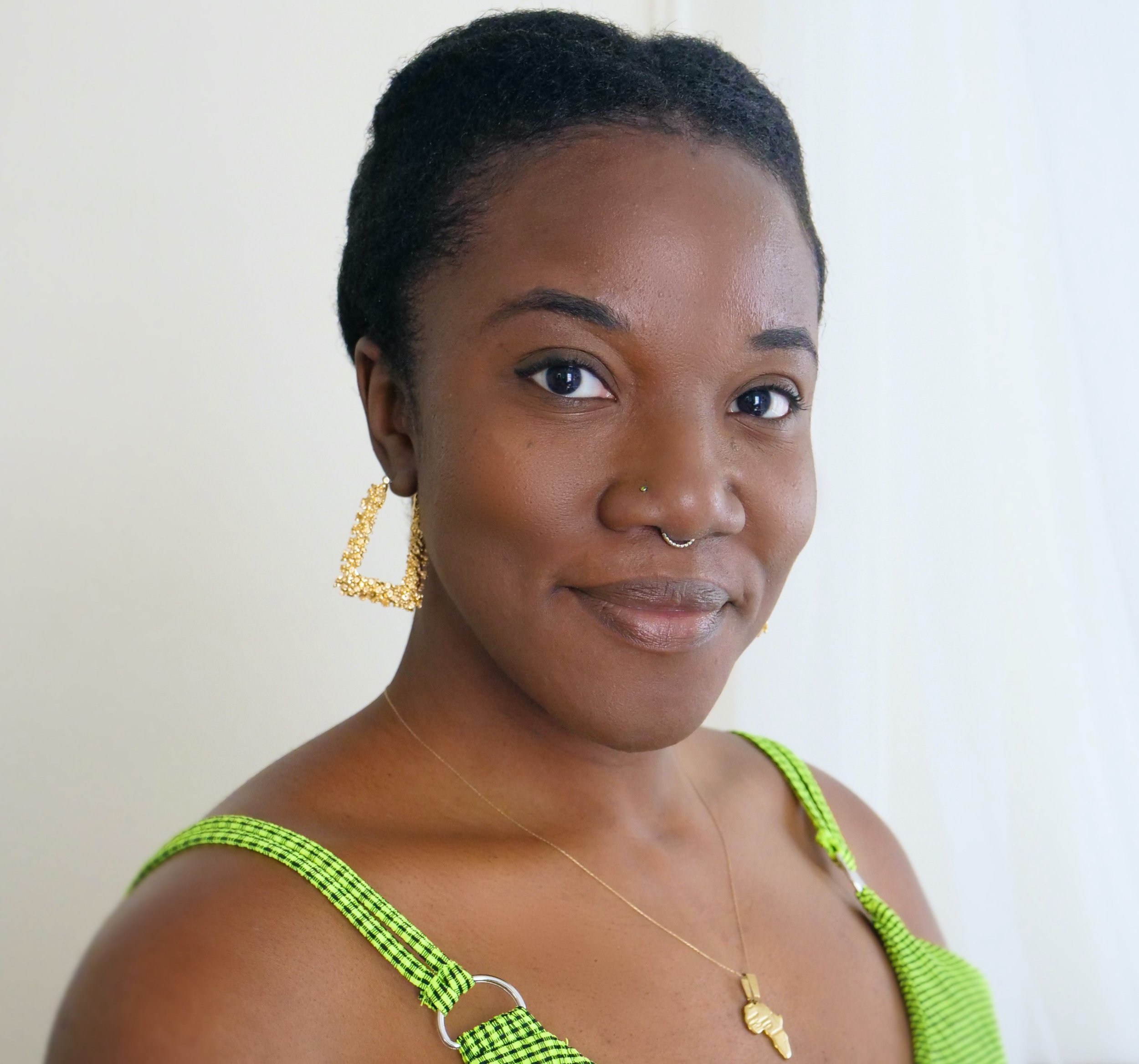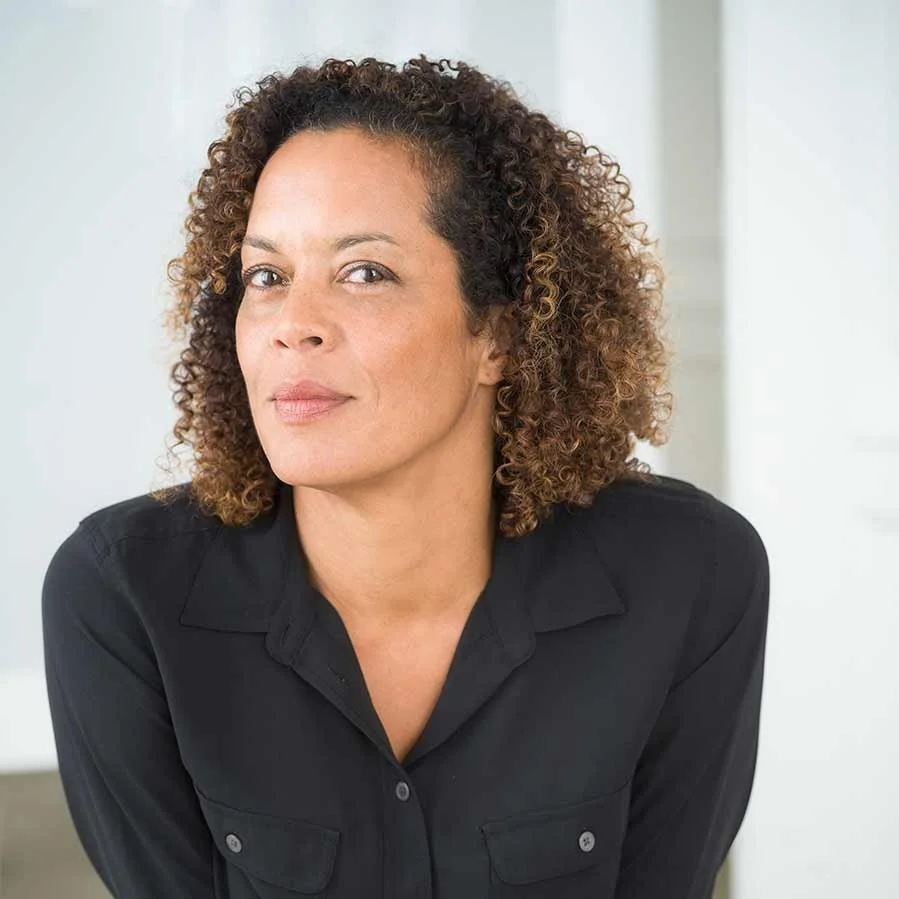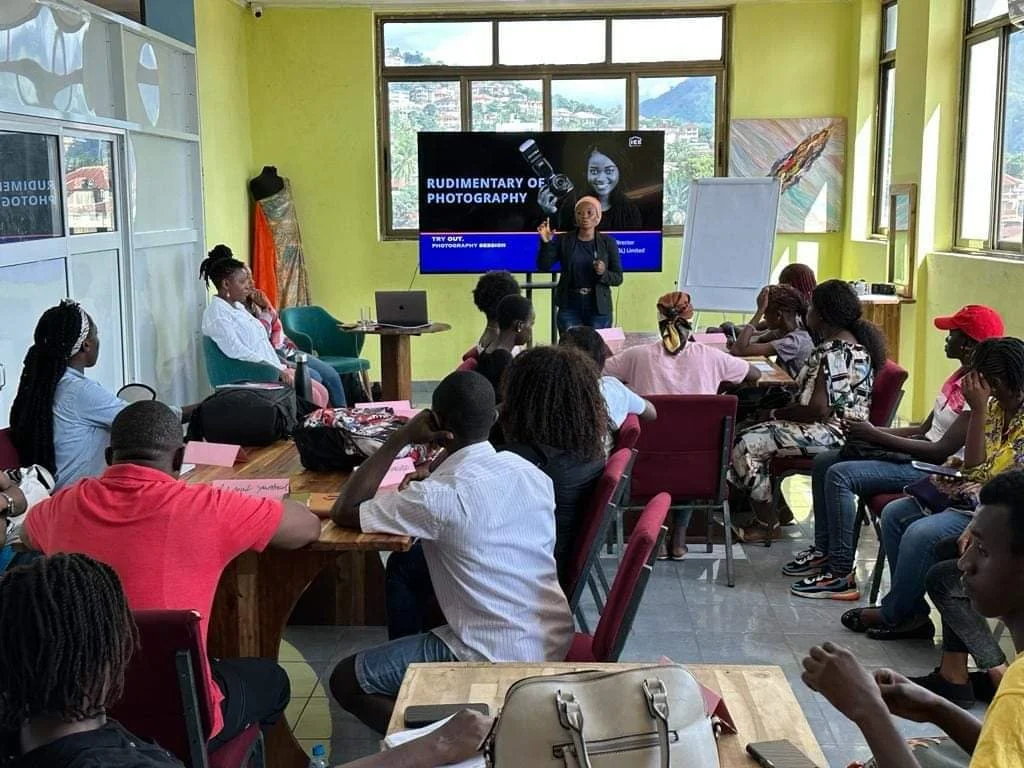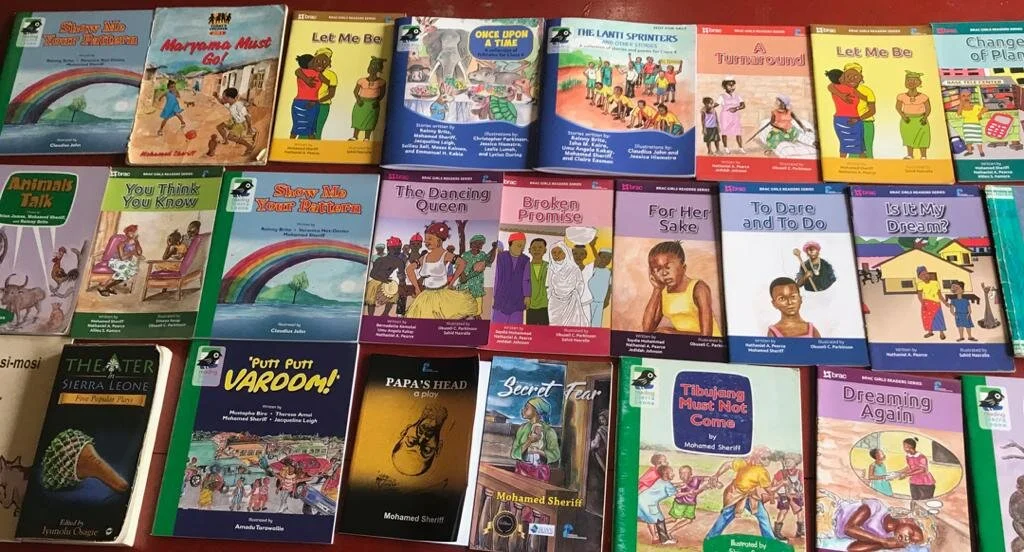Yarri Kamara is a Sierra Leonean-Ugandan writer, translator and policy researcher who has lived and travelled extensively in the Sahel. She has been awarded several translation grants and was a finalist for the National Translation Award in the US for her translation of Monique Ilboudo’s So Distant From My Life. Her own essays and poems have appeared on numerous platforms including Africa is a Country, The Republic, Lolwe and Brittle Paper, and her work has been translated into French, German and Portuguese. She recently co-edited the anthology Sahara: A thousand paths into the future (Sternberg Press). In this interview, Kamara talks to Poda-Poda Stories about the importance of literary translation in Africa.
This interview has been edited for length and clarity.
Ngozi Cole: You’re a writer, essayist and researcher. How did you get into literary translation?
Yarri Kamara: I saw it as a necessity. I like playing around with languages, but I was happy for many years just doing technical translations.I lived in Burkina Faso for 17 years, so I was reading a lot of African literature written in French during that time. I'd come across great work and then I tried speaking to my family who don't read French about these books, but the books weren't available in English. That’s when I started paying attention to what gets translated and what doesn't get translated.
Now, a lot of the Francophone African literature has been translated by non-African translators, which in and of itself is not a problem, but sometimes you come across some translations that are a little bit lacking in context. So you wonder how much of the local context of the way French is spoken and whether it is West African or central African, whatever the region is, how much that particularity did the translator understand and how much attention did they put into conveying that into the English form. When I came across a Burkinabe novel, So Distant from My Life—which was my first literary translation project— I read it and I loved it. And I thought, well I have many years experience translating, given not literary translation, but here I am thinking about why is it that there's so few African texts translated by Africans? This is my opportunity to change that. And so I jumped in and gave it a shot.
Ngozi: What was the translation process of So Distant from My Life?
Kamara: I came across the book at its book launch. I picked up a copy and I read it almost in one sitting. It's quite a short book, but I like the rhythm and humor in it. So then I went to meet Monique Ilboudo and I told her I was interested in translating the book and would she be fine with that? And she said, sure, go ahead. I started looking for grants and came across the Penn/Heim grant program. I sent off an application and continued translating, even though I had no funding secured yet. And the translation process in and of itself was just a lot of fun and easy, because I knew exactly where her characters were coming from. Ilboudo bases her characters on the youth that grew up at a certain time in Burkina Faso. I could see her characters and in my head I could understand their expressions,what the thought processes were underneath what they were saying.
Ngozi: What would be some of these gaps that you think are still holding us back in terms of literary translation, and what’s your mapping of the literary translation landscape in Africa?
Kamara: There are a not lot of African translators between European languages, for example English and French or English and Portuguese. And I think part of that is a reflection of how foreign languages are not taught particularly well in our school systems, because to be a good translator, you absolutely have to be able to comprehend everything in the source language. On the other hand, thankfully you do see a lot of literary translators working between African and European languages. In South Africa, there's a lot of support for working and translating with the local languages like IsiZulu, Xhosa etc. I think it was just a few months ago that a celebrated translation of George Orwell's The Animal Farm came out in Shona. So I think it's fantastic to see these African writers and translators who master the languages that a lot of them grew up speaking and that they're now bringing works written in English and sometimes written in English by African authors. There's also now an impetus for promoting literature in the Swahili language, and some of that also goes towards translating texts into Swahili. I think Abdulrazak Gurnah winning the Nobel Prize for Literature has given a boost to that because now you have international bestsellers that can be translated into Swahili. So I think there’s a lot of positive development.
If we come back to West Africa, my overall observation is that there's still a lot more texts written in English by West African authors being translated into French, though often that's passing directly through France because we have such big name writers writing in English and most French publishing houses are interested in them. A lot of English to French translators emerge from Cameroon just because of that unique situation that Cameroonians have where a lot of people who grow up bilingual within the European languages in addition to indigenous Cameroonian languages they may speak.
Portuguese speakers are in Portugal, Brazil, and then the three or four countries in Africa. But I do know a lot of publishers based in Angola or Mozambique that are actively looking for things to translate into Portuguese for the Angolan or the Mozambican audiences because there's quite some differences between African Portuguese and Brazilian Portuguese.
Because so much of the world functions in English and through English, you can already access quite a variety of literature within Africa. There are so many Nigerian writers and so many South African writers. So maybe it takes us English speakers some time to realize that we're missing out on parts of the world when it comes to literature. Both the publishers and readers are not that actively looking for works being translated into English by African writers writing in other languages. Whereas I think certainly the Portuguese-speaking Africans, and also the French-speaking Africans are much more curious about accessing what is being written by Africans in English.
Ngozi: You’re right, English speakers do read in a bubble because so much is translated for us. I read Han Kang’s The Vegetarian and I really enjoyed it! And when she won the Nobel prize for literature, there was a debate on social media about the translation of The Vegetarian and that’s when I thought, oh, of course it was originally written in Korean! How do translators strive to stay true to the original version of the text?
Kamara: I think that's why translation is an art rather than a science. It’s great that you enjoyed Han Kang’s The Vegetarian–I know the translator who translated it into English—and it didn't occur to you initially to think this was not written in English. I think that's a sign of a good translation where it feels like it was written in the language you're reading it in. At the same time, you're also able to glean the unique cultural world of the original author. I think that's the balance that translators are always seeking.
Ngozi: What have been some of the formative books or forms of literature that have shaped you both as a writer and a translator?
Kamara: I went to an international school and there was no African literature on the curriculum at the time, but I think that has changed now. As a young teenager, I did attempt to read some of the immediate post-colonial African writers. But I think I read them at the wrong time in my life. I found them very stuffy and that didn't appeal to me. I came back to African literature as an adult and fell in love . I read two remarkable memoirs by African writers: Equiano’s Travels, also known by its original title “The Interesting Narrative of the Life of Olaudah Equiano or Gustavus Vassa the African” which chronicles the life of an enslaved Nigerian, who later buys his freedom, and his travels from Africa to the Americas and through Europe. And the other, more recent, “An African in Greenland” by Togolese writer Tété-Michel Kpomassie which recounts his long trip to Greenland in the 1960s. The observations that these two travellers coming from an-as-of-yet unglobalized Africa make of the foreign worlds they encounter are fascinating and a refreshing alternative to the prevailing Eurocentric narratives of those times. These books really opened my eyes to the importance of us Africans chronicling our times for future generations. A recent book that I come back to a lot is Ben Okri's A Way of Being Free, which are just beautiful reflections on the work of writers, or more broadly the work of artists in society, and how do we navigate the joys and also the heavy burdens of what storytellers are trying to do. In that book, Okri talks a lot about the responsibility that storytellers have and the kind of courage they need to have to do it well.

